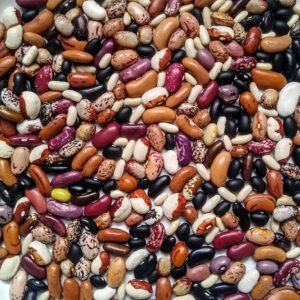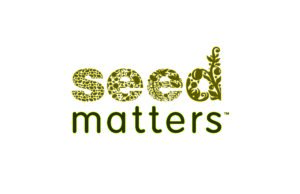
 Our friends at Seed Matters have a number of exciting announcements this week. For starters, the initiative formally launched its website — a beautiful, interactive contribution to the seed community and broader organic food and agriculture conversation, serving as a source of education and discussions on all things seed. For example, on The Seed Commons blog, you’ll find exclusive commentaries on topics like “Breeding Organic Corn to Prevent GMO Contamination” and meet the next generation of organic plant breeders.
Our friends at Seed Matters have a number of exciting announcements this week. For starters, the initiative formally launched its website — a beautiful, interactive contribution to the seed community and broader organic food and agriculture conversation, serving as a source of education and discussions on all things seed. For example, on The Seed Commons blog, you’ll find exclusive commentaries on topics like “Breeding Organic Corn to Prevent GMO Contamination” and meet the next generation of organic plant breeders.
And that’s the second announcement: As we’ve shared before, the Clif Bar Family Foundation, through Seed Matters, is funding the first ever university fellowships in organic plant breeding. Yesterday the initiative announced it had funded a fourth fellowship, awarded to Kara Young of Oregon State University. It’s a five-year fellowship that allows her to study organic vegetable breeding under the direction of Dr. Jim Myers. Myers is a leader in the organic plant breeding community and co-edited Organic Crop Breeding, the first textbook on organic crop improvement.
As OSA witnessed at this year’s Student Symposium on Organic Plant Breeding, the interest in breeding for organic systems is growing, and these fellowships are an example of the visionary approaches industry members can take to support a future where the organic food sector is based on a foundation of seed well-adapted to organic conditions and that meet the changing needs of farmers.
Lastly, Seed Matters announced a new program to support the burgeoning interest in community seed banks and libraries, seed swaps and gardening projects. Matthew Dillon of Seed Matters says dozens of seed banks have sprouted up across the U.S. Through new “community seed toolkits,” Seed Matters is helping to educate and inspire teachers, community gardeners, and other local leaders to create community seed projects.
Local groups and garden organizers can apply for the free toolkits here. Each kit includes three seed screens, 250 seed envelopes, 50 labels for jars and other large seed containers, basic seed saving tips, a chart on the best way to save the seeds of more than 30 vegetables, and pamphlets on how to organize community seed banks, gardens, and swaps. The tips, charts, and pamphlets are also available for download to anyone who visits the Seed Matters website.
In the coming months you’ll learn more about OSA’s Farmer Seed Stewardship Initiative, a collaborative project with Seed Matters that advances education, research, and advocacy to support farmers’ ability to save, breed, and produce seed for on-farm and commercial use. As Seed Matters notes, “Farmers are returning to the fields as plant breeders and innovators.” OSA is fostering this movement by helping to build the knowledge base necessary to further innovation and conserve valuable crop genetics. In other words, the knowledge and skills to participate as seed stewards. We’re heading into next year with more working models and momentum than ever before. If you’re a farmer working with seed, be a part of the growing network of seed stewards. Learn how here.
